back
Chiloé Pre-Program
Schedule
- Feb 2nd -- Arrive in Santiago
- Feb 3rd -- Santiago -> Puchilco, Lemuy Island, Chiloé
- Feb 3rd to 16th -- group classes & activities
- Feb 16th to 21st -- Hosted by potato farmers in Puchilco!
- Feb 22nd -- Chiloé -> Santiago, meeting host families
One Night in Santiago
Upon a 7am arrival, we spent the first day and night in a hotel in Santiago with Claudio, the pre-program director, and Claudia, the director of this whole program. In total we are 17, with 14 from ND and 3 from Marquette. There was only enough time (and energy) to take out some Chilean money and take a walk around the area. From the top of the San Lucia hill, I got a better sense of the city of Santiago. It is large (almost 7 million people in a country of 20 million) but placed so closely to even larger mountains that it doesn't feel quite as separate from the landscape. There are also many parks in the city, including San Cristobal, a hill within the city limits that rises far above any buildings.
Two photos from San Lucia
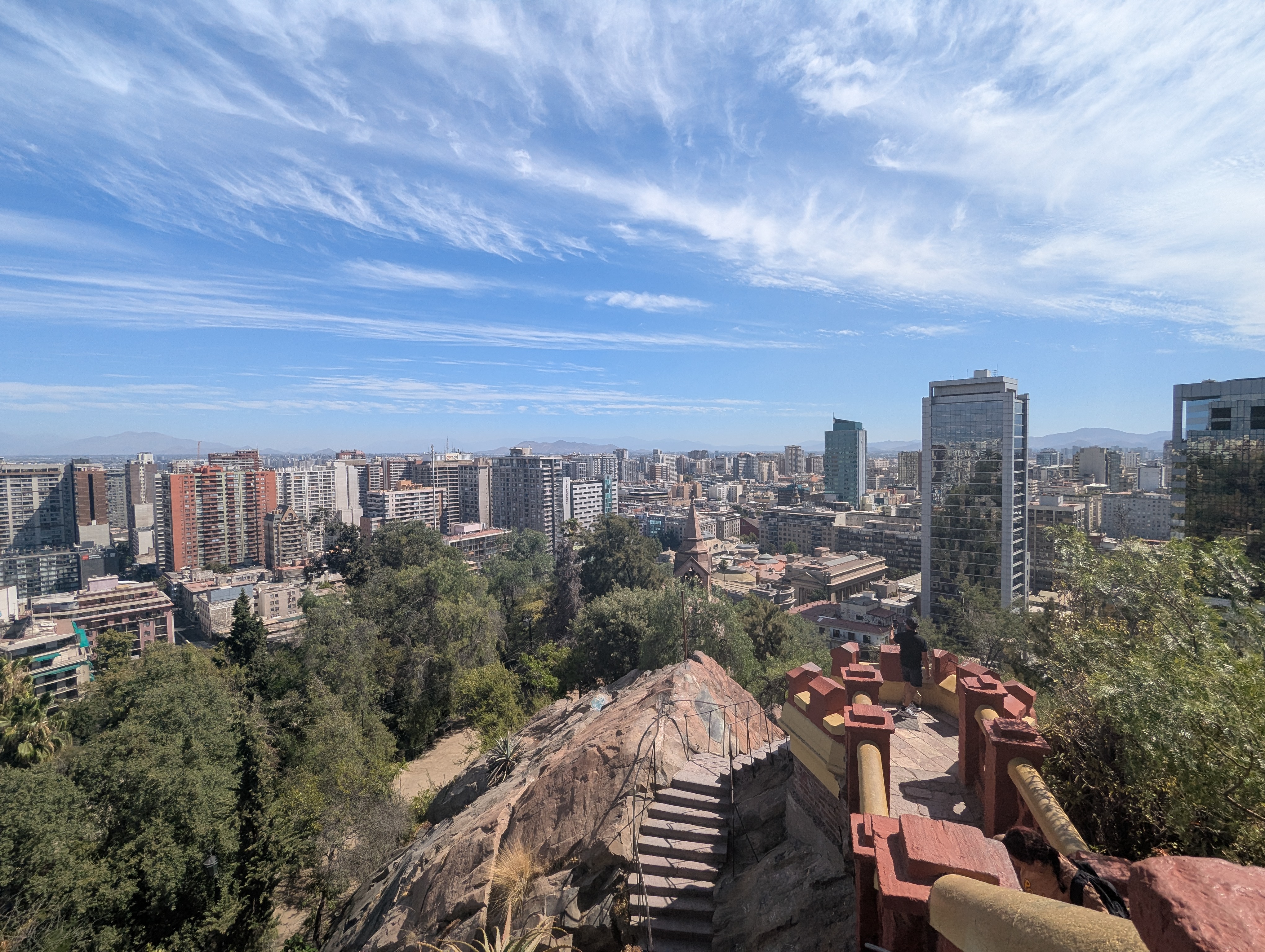
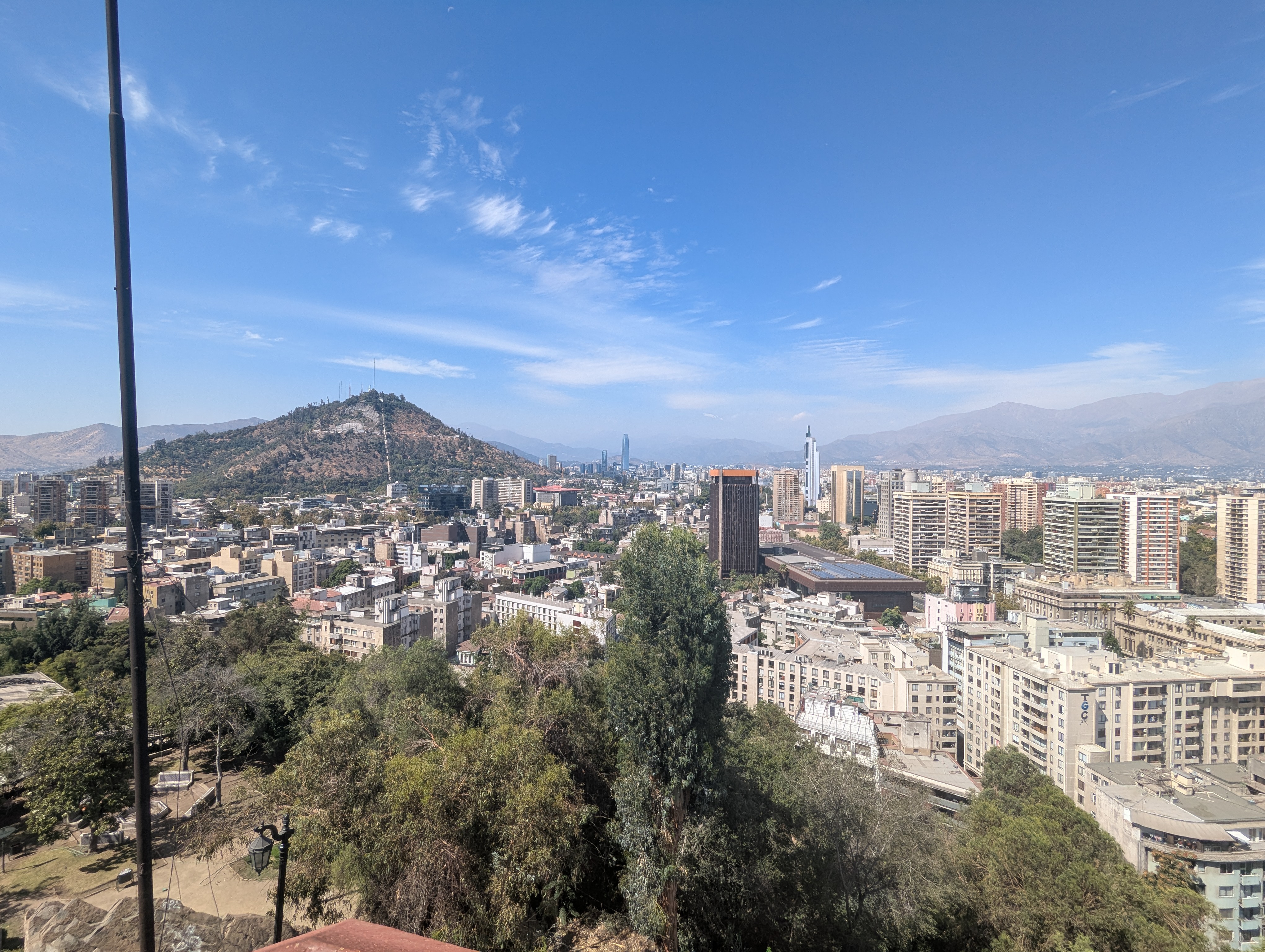
Early on the morning of the 3rd, we headed back to the airport for a flight to Chiloé, the location of the pre-program.
Classes & Activites
The pre-program is a time to learn about Chilean culture and language (always intertwined) and to get to know the group before we head off to separate host families in Santiago. Last year the woman who ran it for 30+ years retired and Claudio took over, moving the program to his current home of Puchilco, a small town on an island in the Chiloé archipelago. Claudio researches and teaches indigenous culture in Chile, and has a lot of experience running programs for foreigners. We stayed in small cabins near the water, and spent most of our days either in the multi-purpose building nearby, taking classes and eating meals, or borrowing one of the local public-transportation buses to see more of the island and tour local farms.
We did too much to recount fully, but here are some of my favorites:
Visiting many of the historic churches on the islands
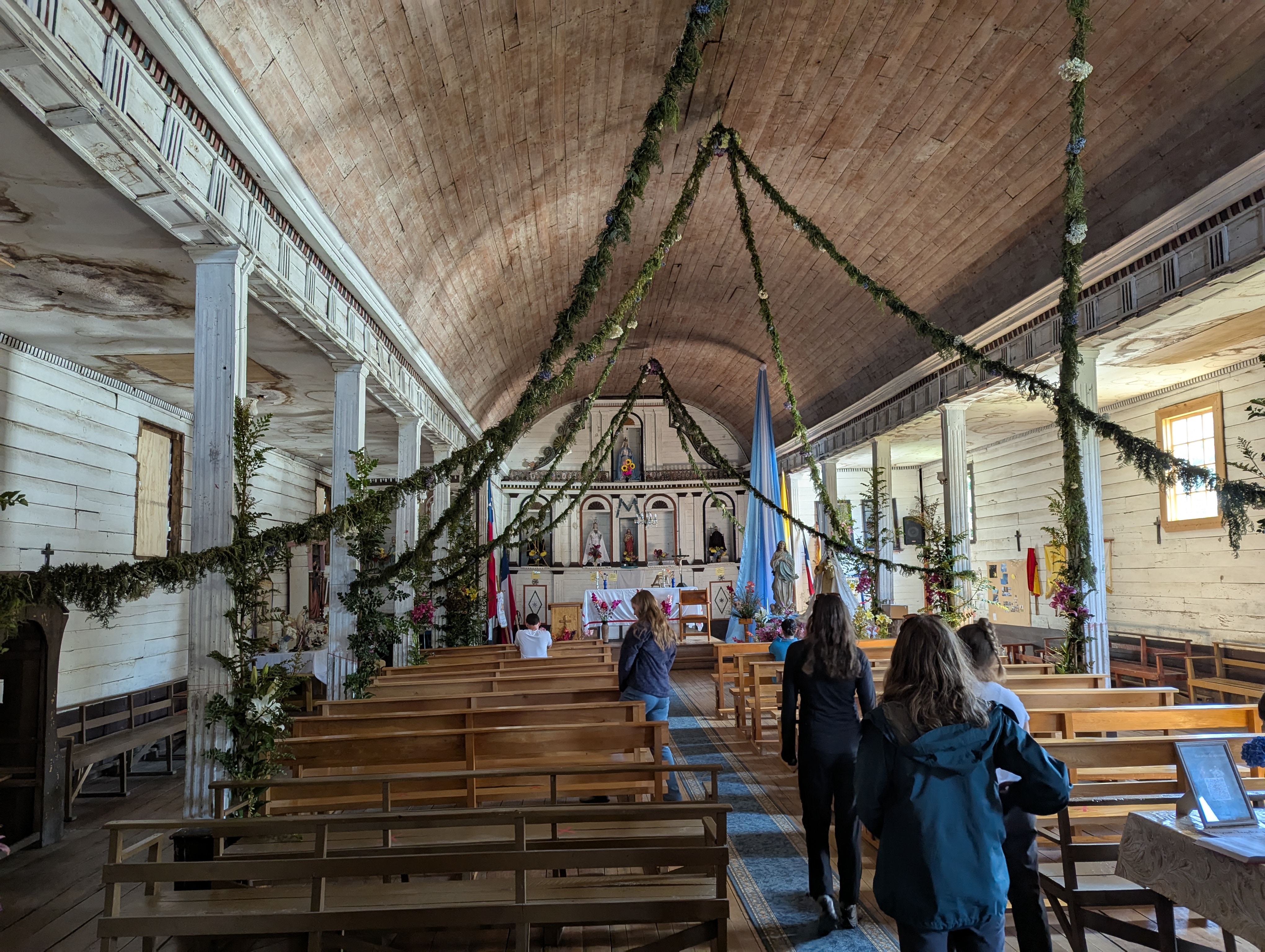
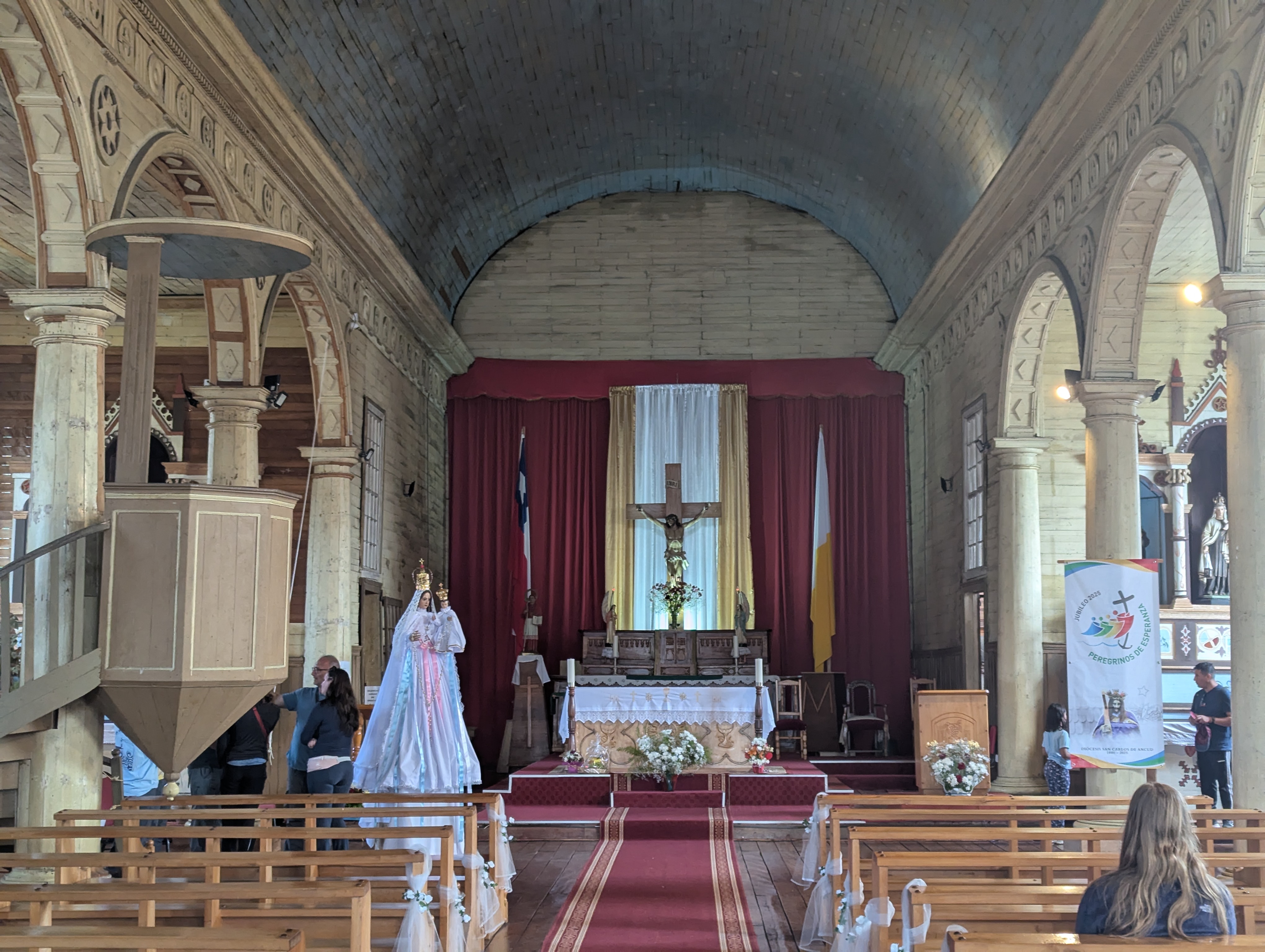
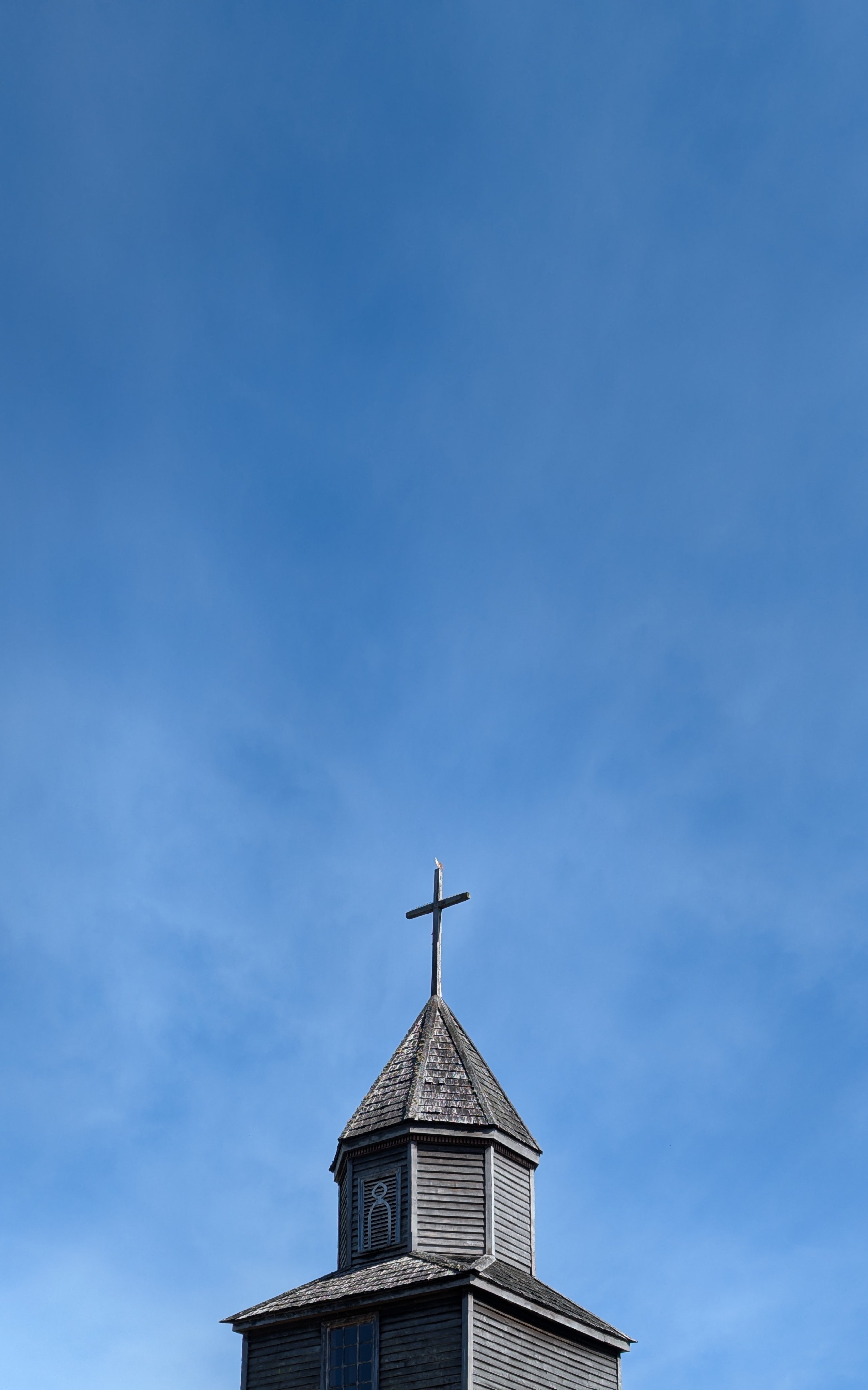
Visiting the more tourist-focused town of Dalcahue for the best seafood I've ever had
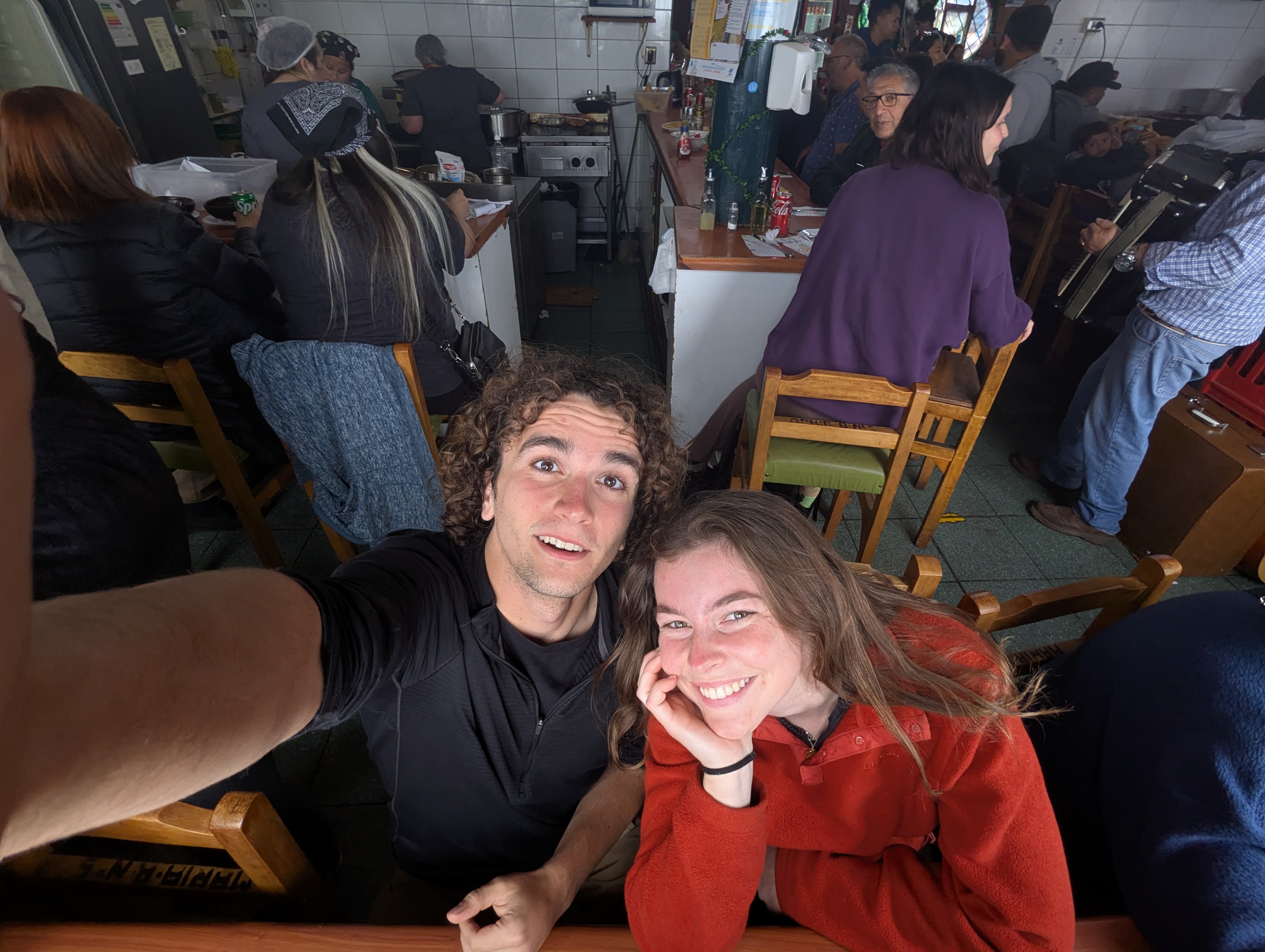
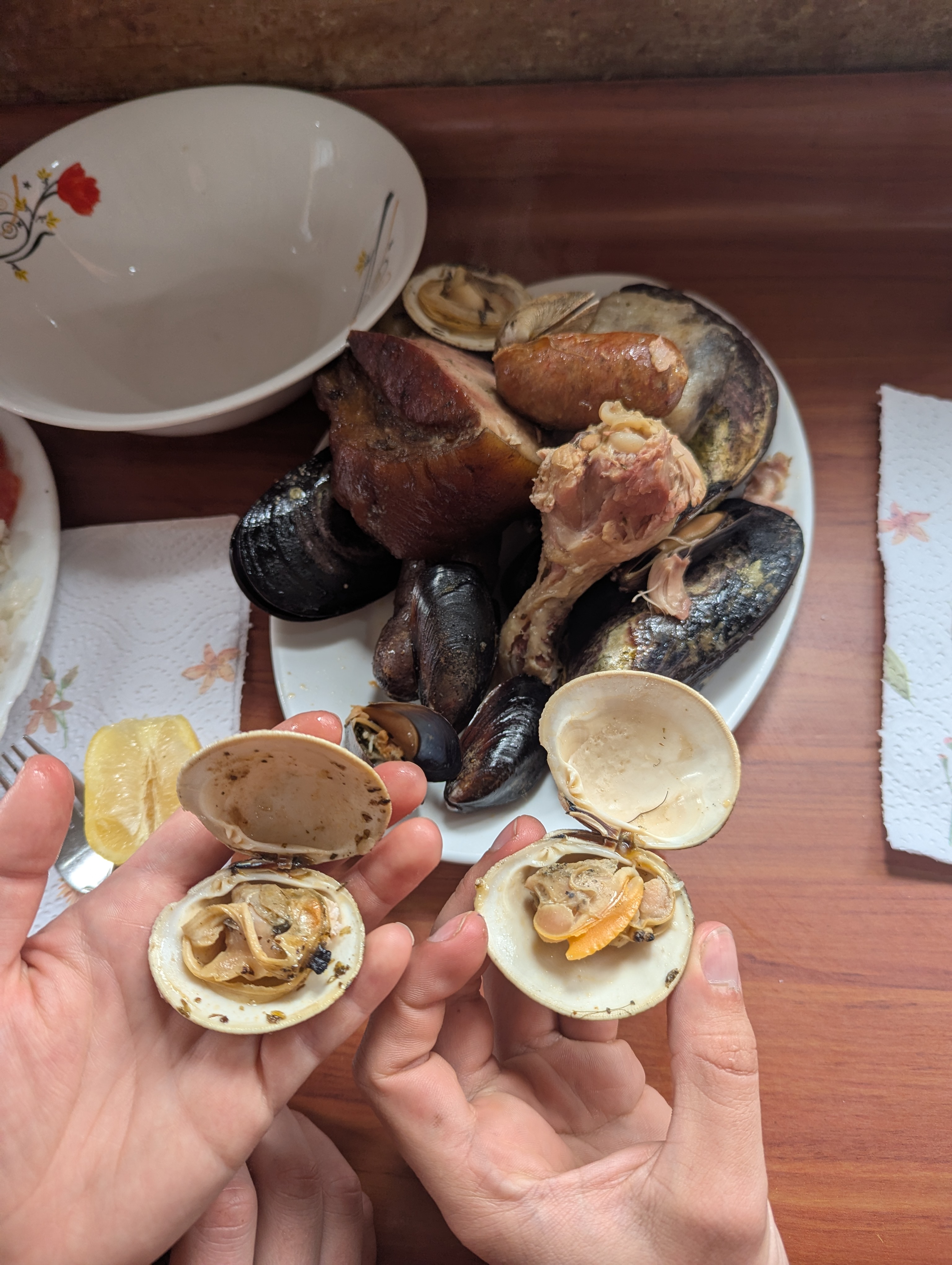
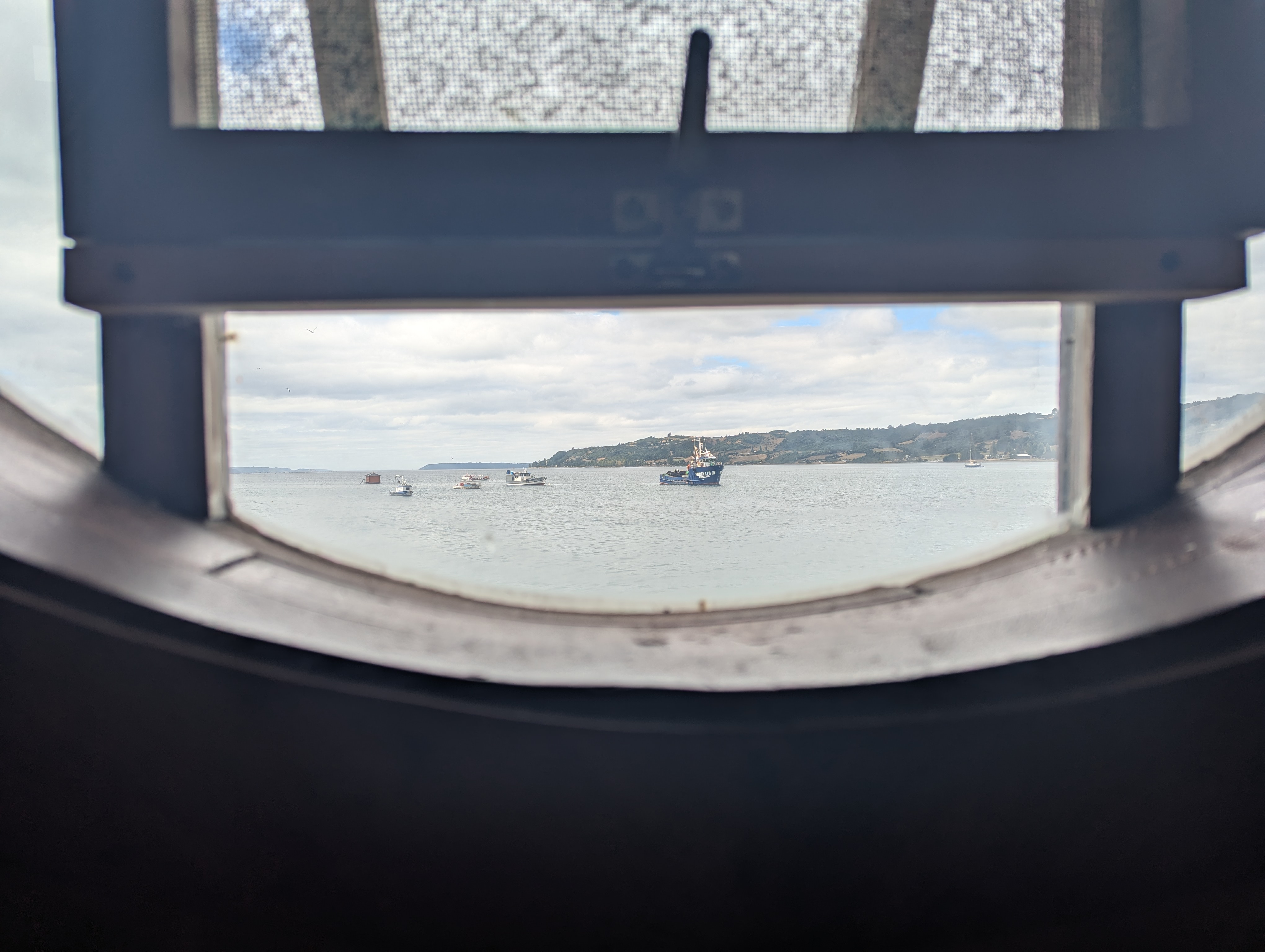
The stars (thanks to long exposure)
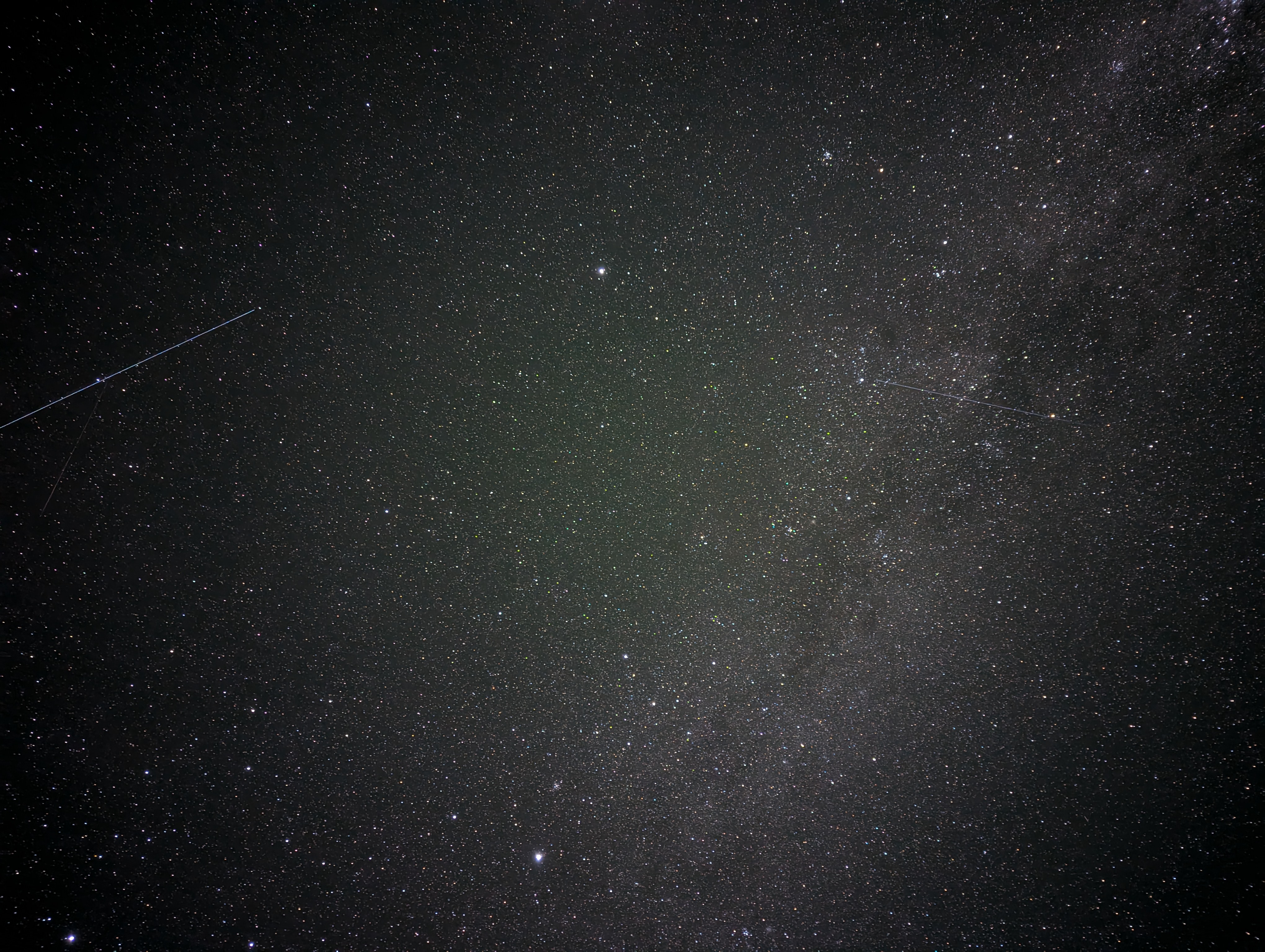
The view from the cabins, and many places in Puchilco where you can see the ocean
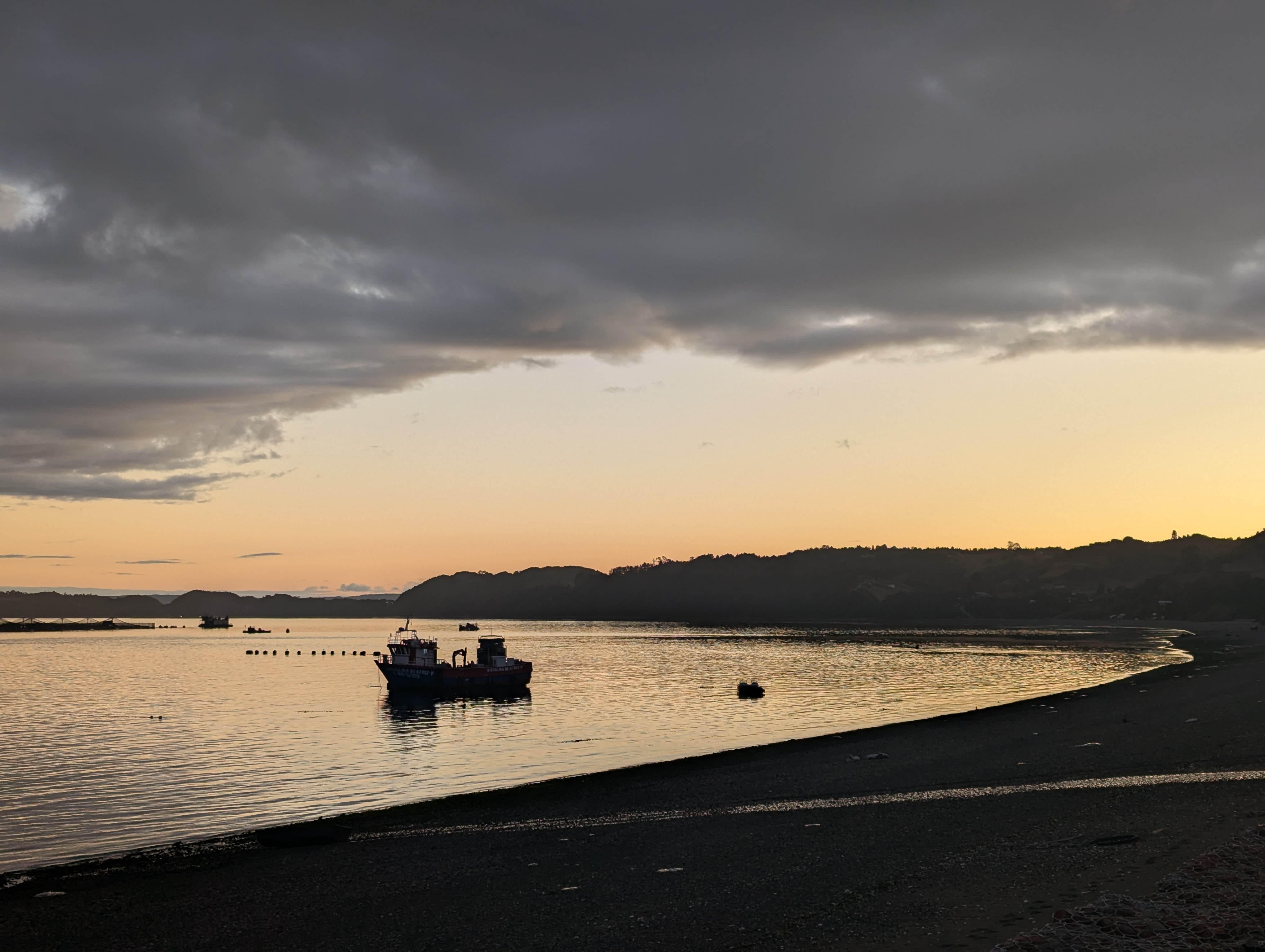
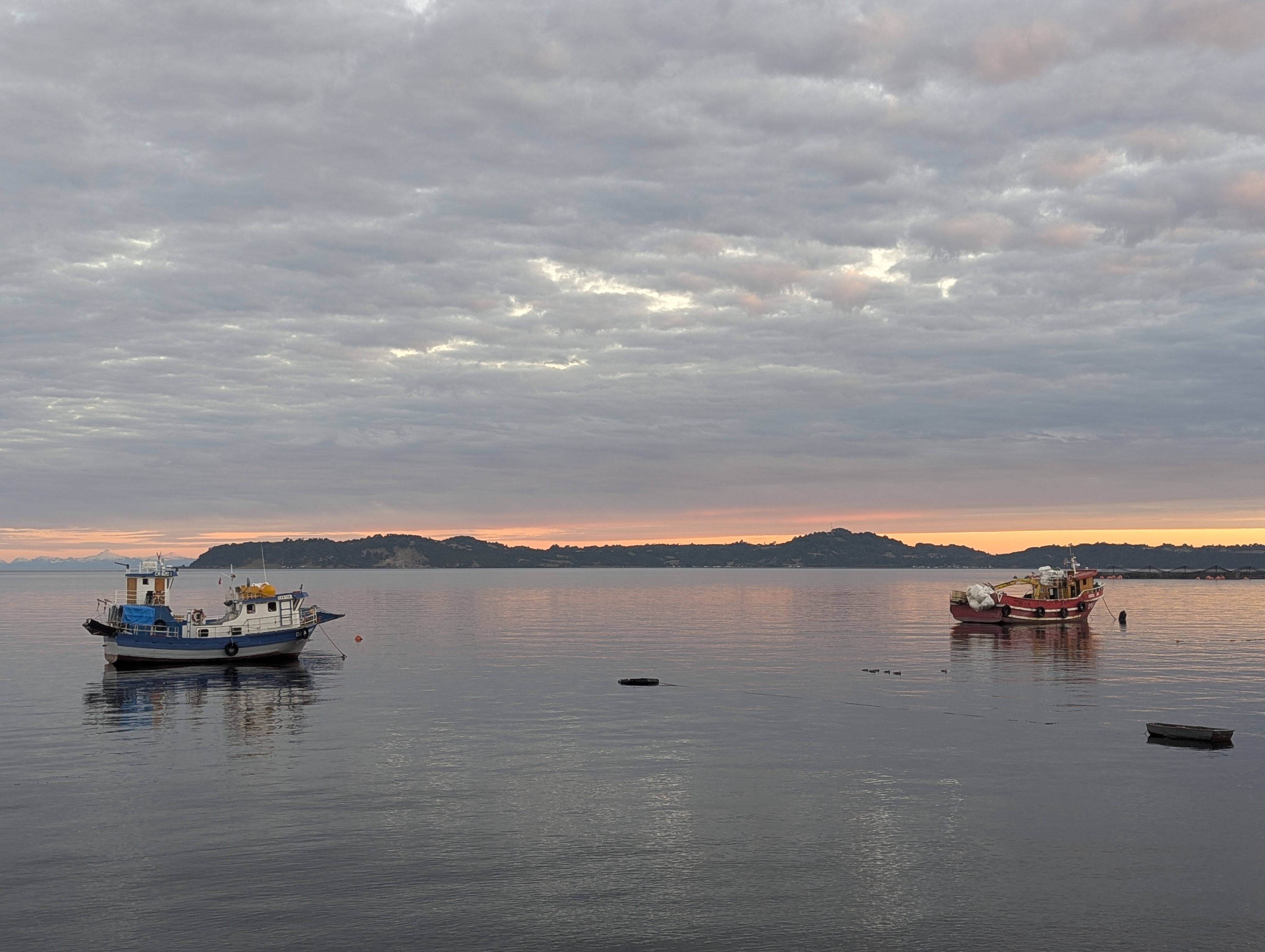
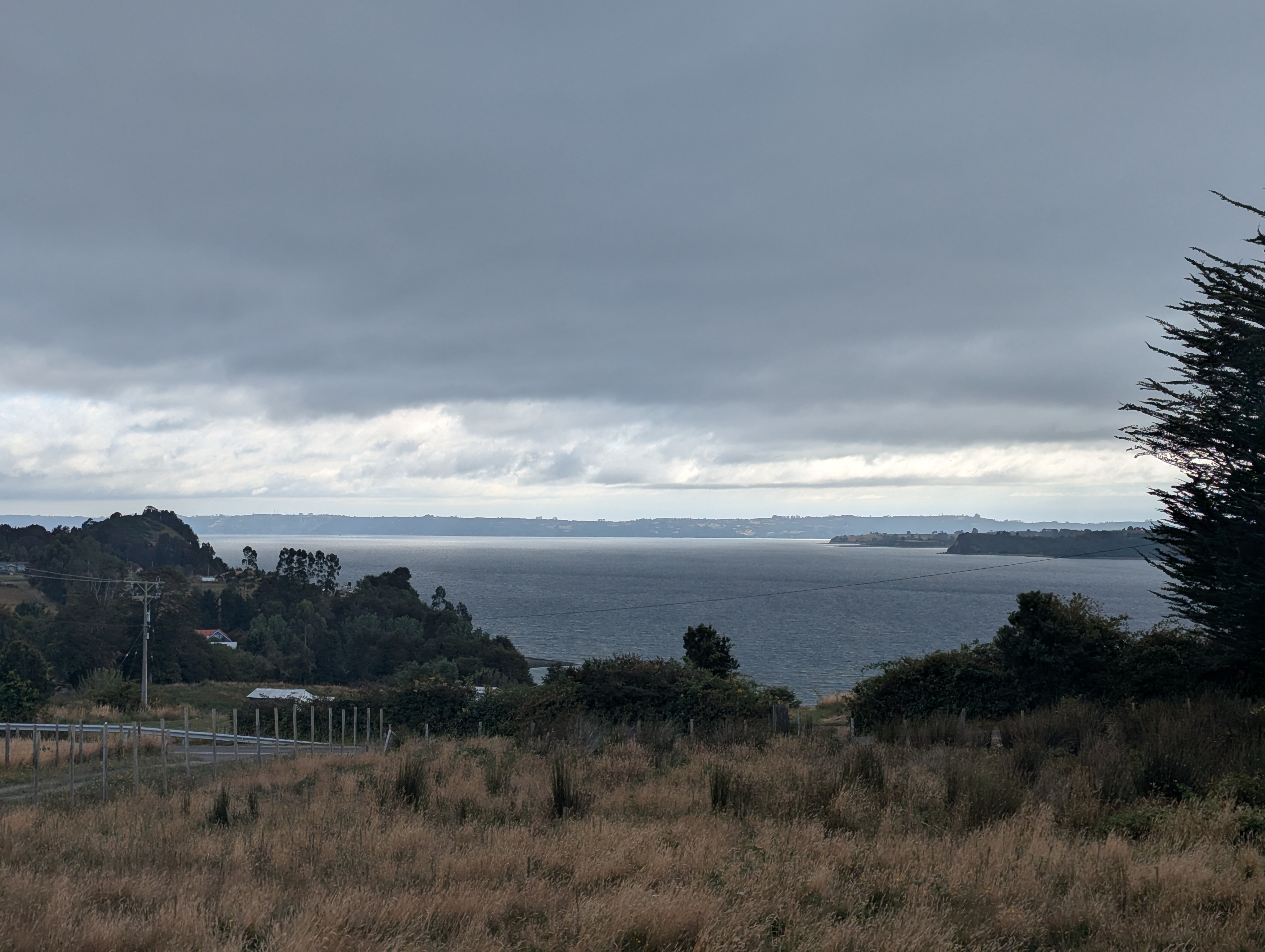
Visiting local farms, many focused on potatoes, and two that were started as sustainability-focused sites.
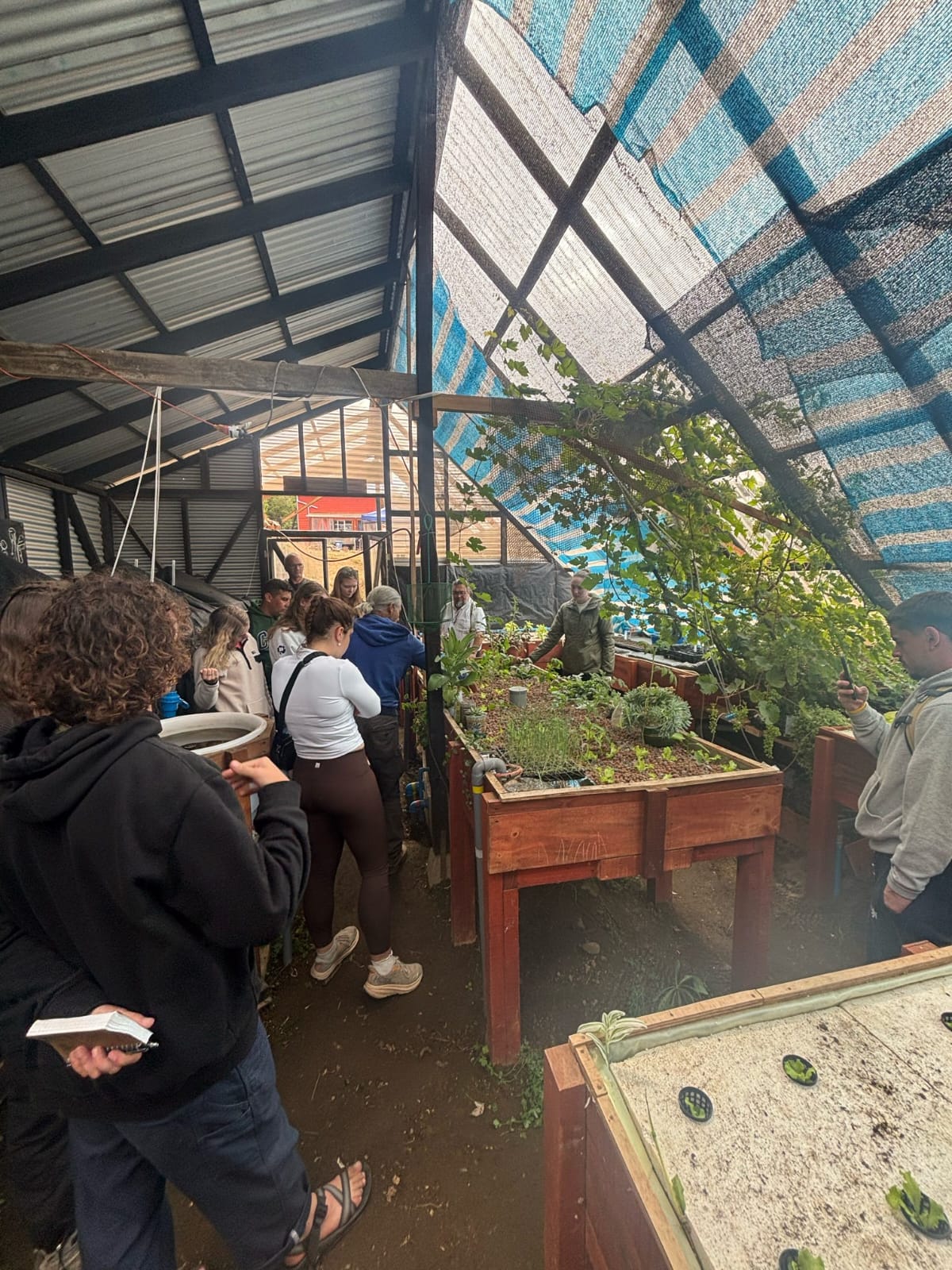
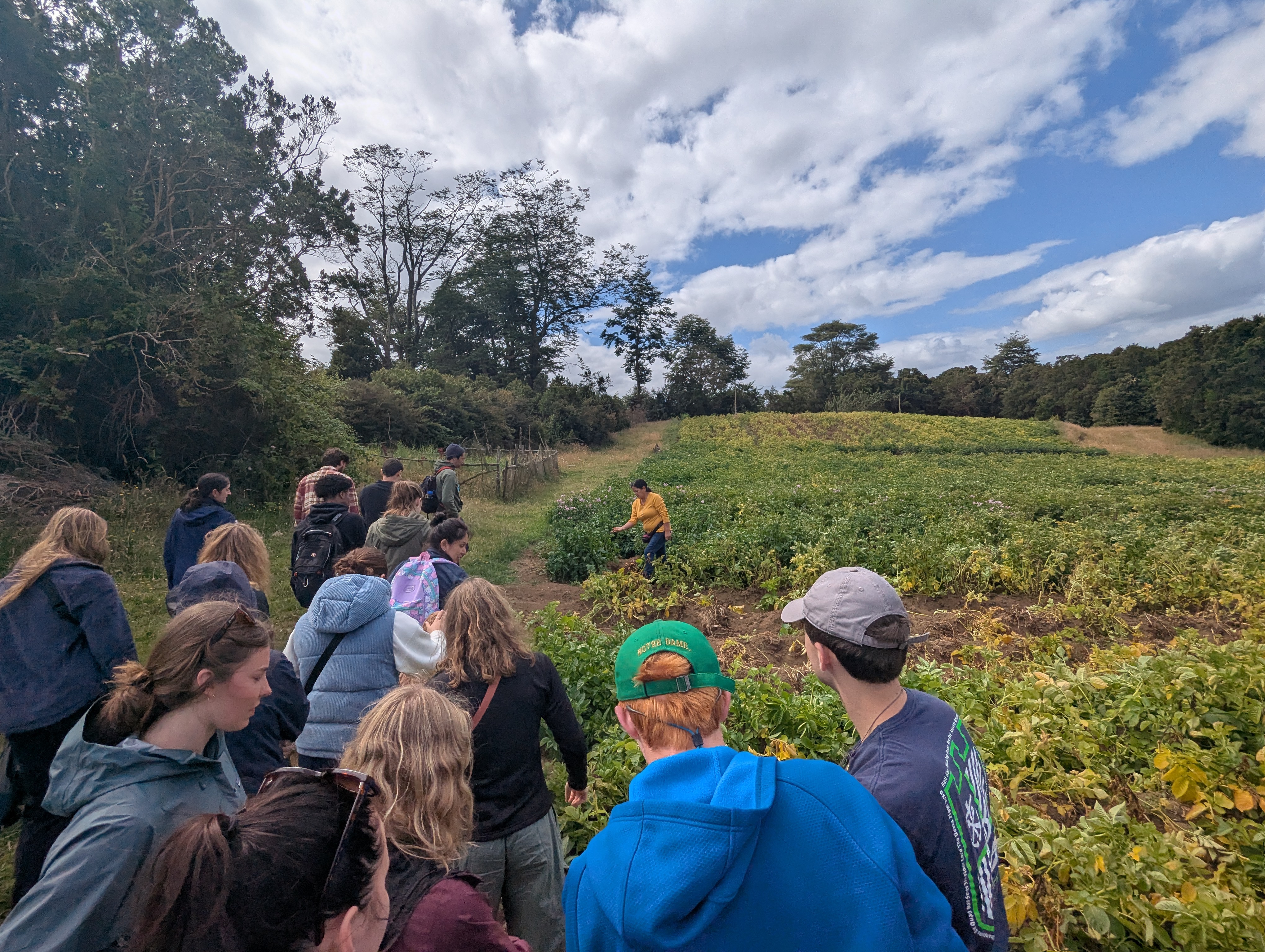
Visiting the salmon farm off the Puchilco coast - this site has probably done more harm than good to the environment, and the locals have mixed feelings. Touring it is a good example of how Claudio gave us a well-rounded view of the island and culture.
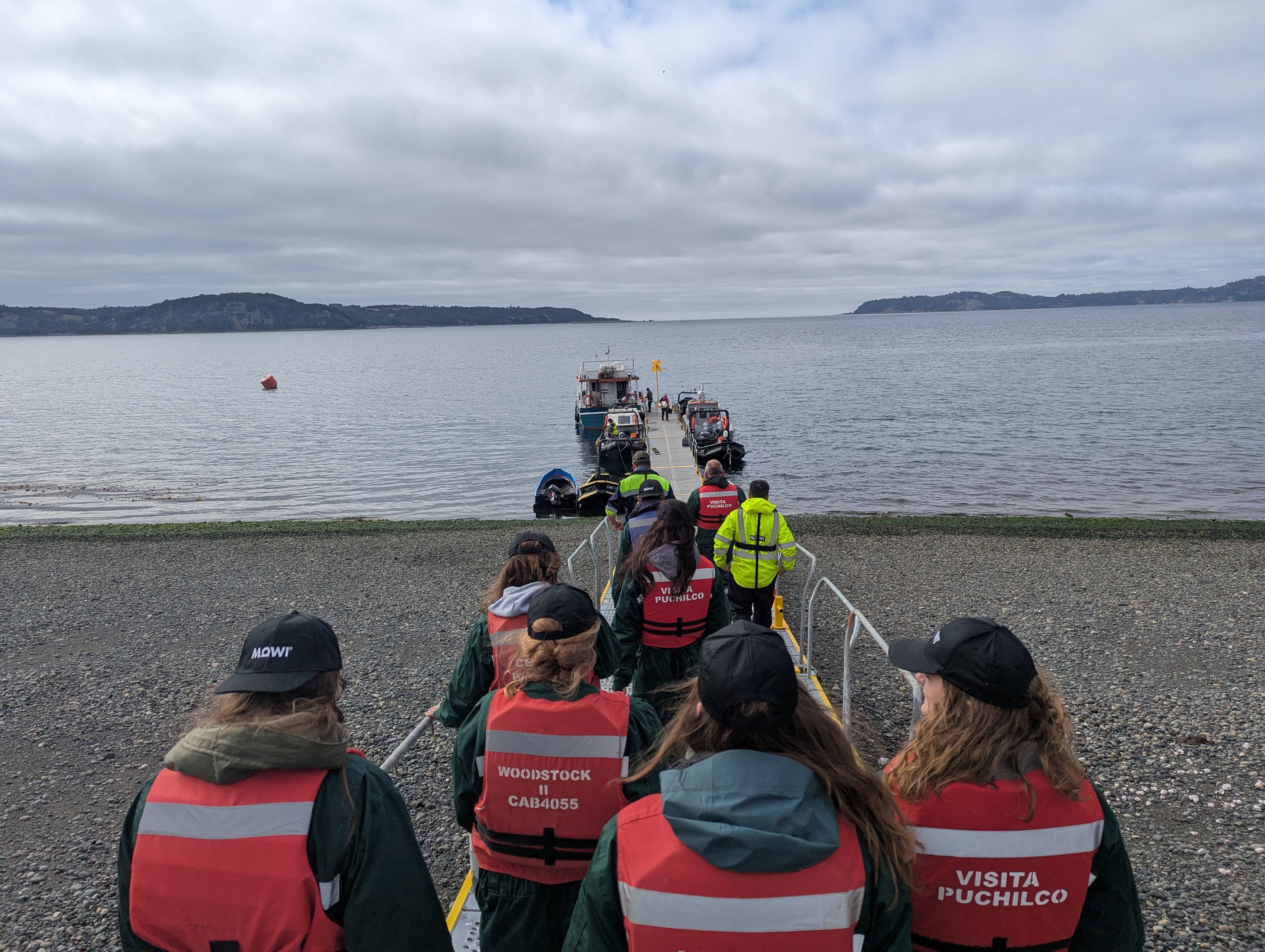
Taking a boat to the two nearest islands (this is the best photo I took somehow)
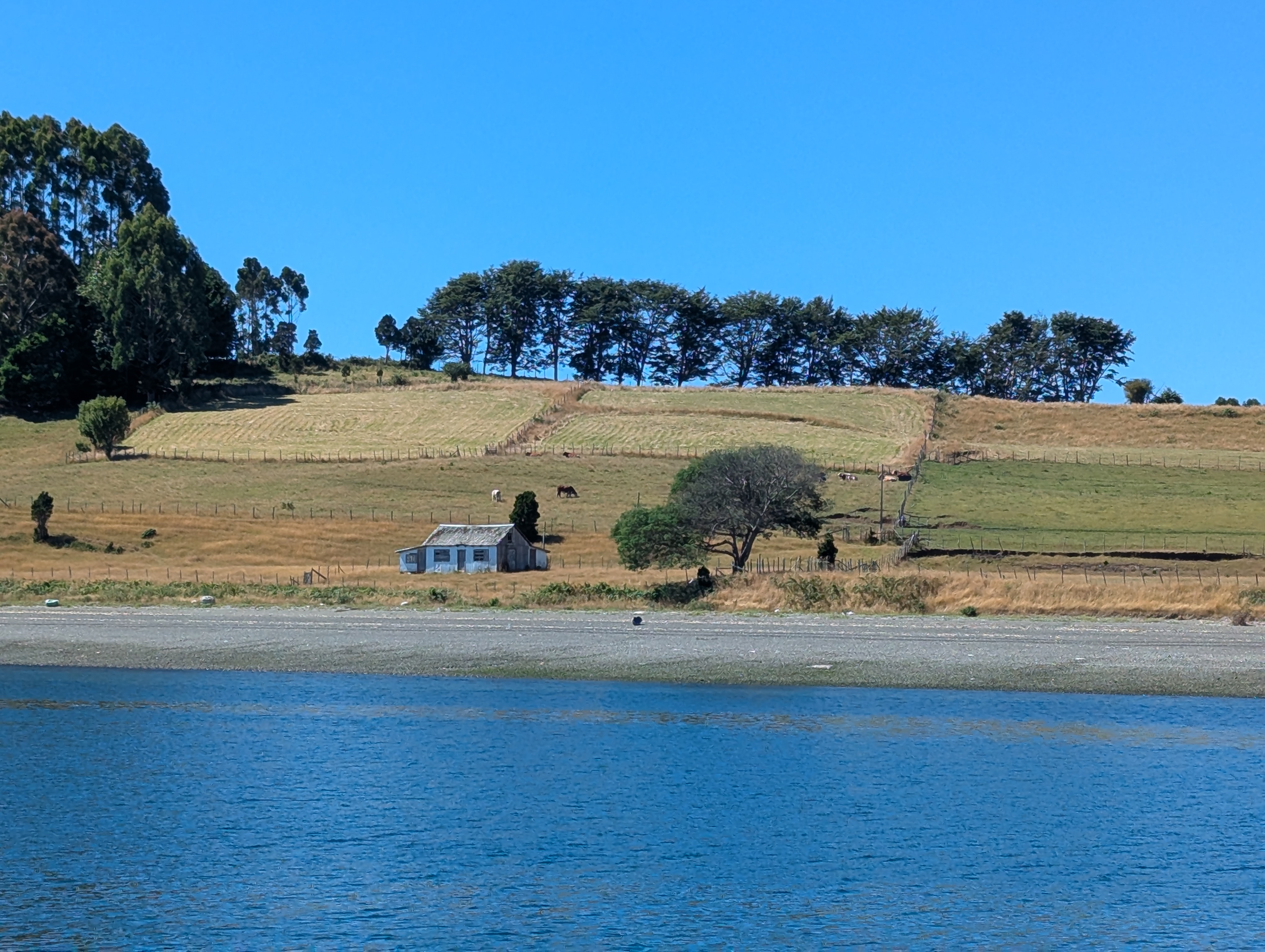
Visiting the national park on the big island of Chiloé
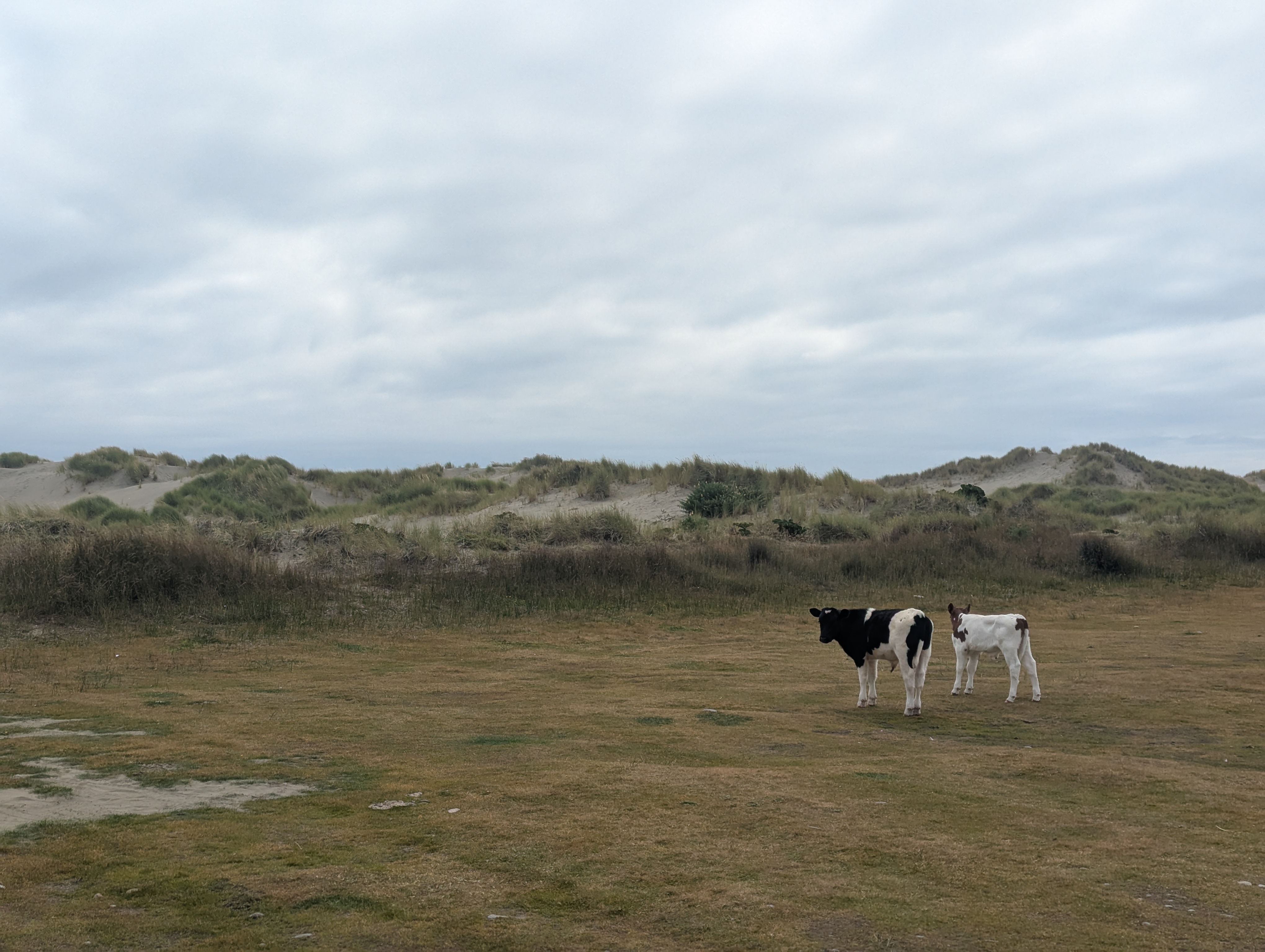
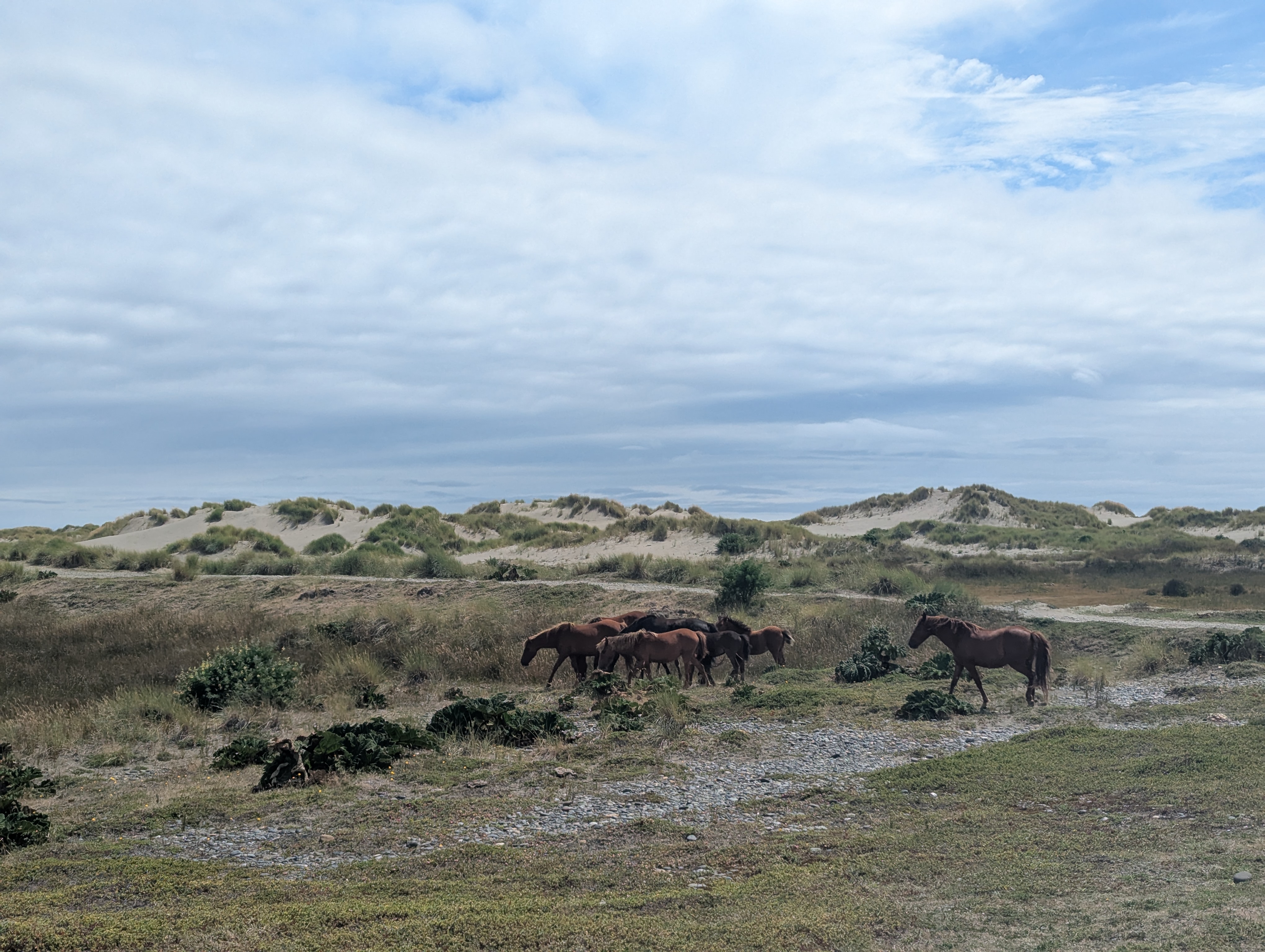
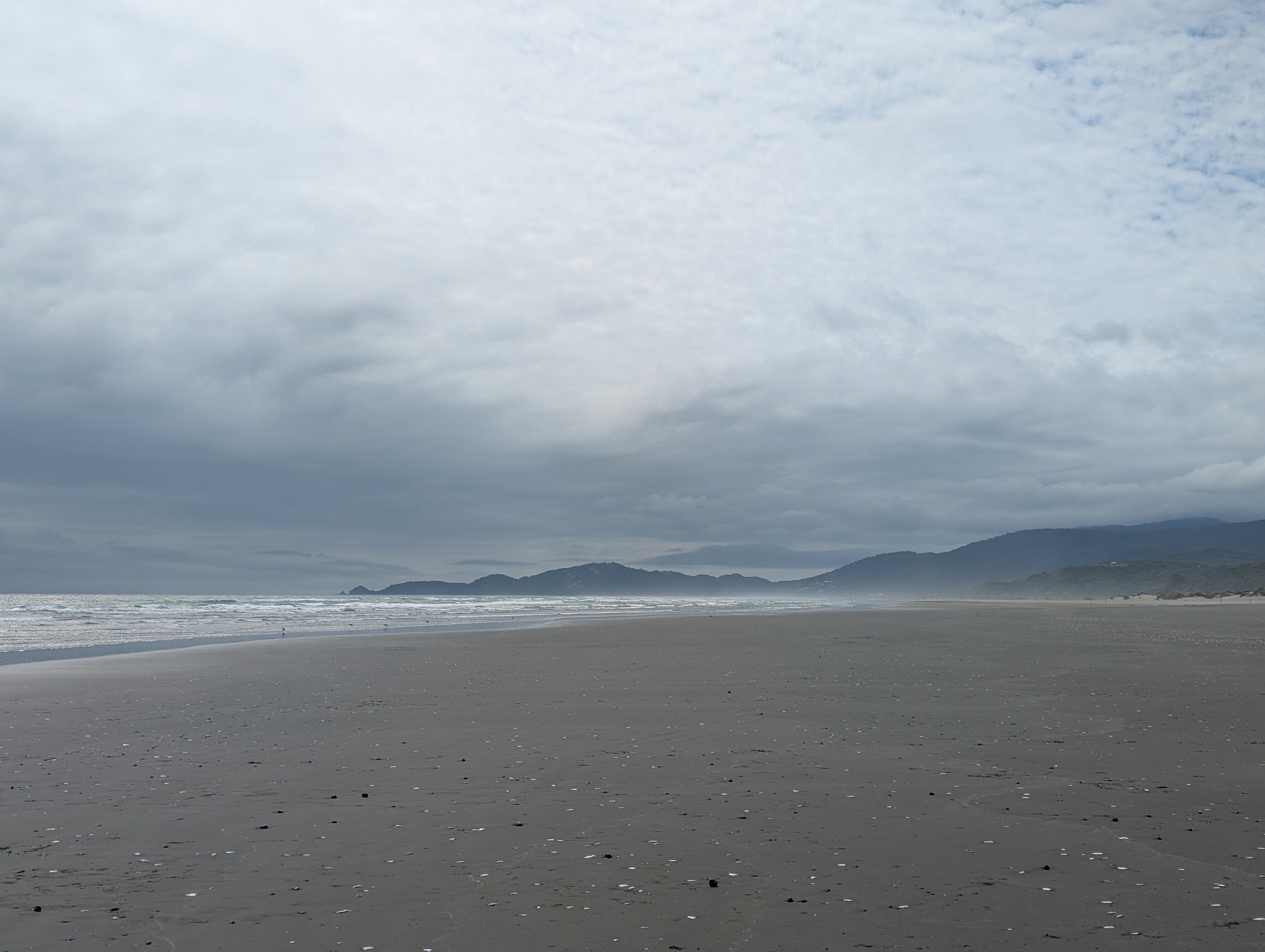
Other favorites that I don't have photos of: - Laid-back classes about history, Chilean spanish, and culture - After a lesson about medicinal herbs, being sent to go ask locals about them, and the first women we talked to giving us a tour of her house and three heads of lettuce in addition to the herbs. - Being possibly the first people on the island to watch the SuperBowl. - Playing soccer in a small, enclosed court near the cabins - Learning about Chilean foods such as Sopaipilla, a type of fried tortilla often eaten on rainy days, then having it for dinner when it rained that night. - Learning to dance traditional Chilean dances (much more fun than I expected), both in class and in the evenings with Claudio (who spent years dancing professionally!).
Two weeks after our arrival, we moved on to homestays with locals!
Puchilco Homestays
Starting on Sunday the 16th, two weeks after arriving the Chile, our group split up to stay with about 10 different host families in Puchilco. That meant mostly in pairs with a few solo, but all within a 30 minute walk of each other (although the houses were pretty far apart, those ten families make up probably about half of all the nearby houses).
Liam, another ND student and I stayed with Juan and Judí, a couple in their early 60s who lived in a small house on their property where they kept cows, sheep, chickens, and pigs, and farmed potatoes to sell. There was no set schedule besides the intention of learning about their daily life and starting a more significant level of immersion. Monday through Thursday Liam and I would spend our days having meals with Juan and Judí, and helping Juan on the farm, with some free time to meet up with others in the group in the afternoons.
The house was heated, food was cooked, water was heated, and clothes were dried all from a single wood stove, the same as nearly every other family in Puchilco. Much of our time working we were cutting and storing firewood for the winter, when the stove has to be lit all day, or harvesting potatoes, something Juan will be doing from now until the end of March. We were not there as employees but rather as guests, and much of our time with Juan was spent learning vocabulary, talking about the news, and learning more about what it takes to be a self-sustaining potato farmer in Chiloé. The Chilote accent is harder to understand, but for only four days and with genuine curiosity on both ends Liam and I worked hard to overcome it.
A couple of nights we also reserved a local field for soccer games as a group, along with host-brothers and sisters. Behind speaking Spanish, my ability to somewhat manage playing soccer has perhaps grown the most.
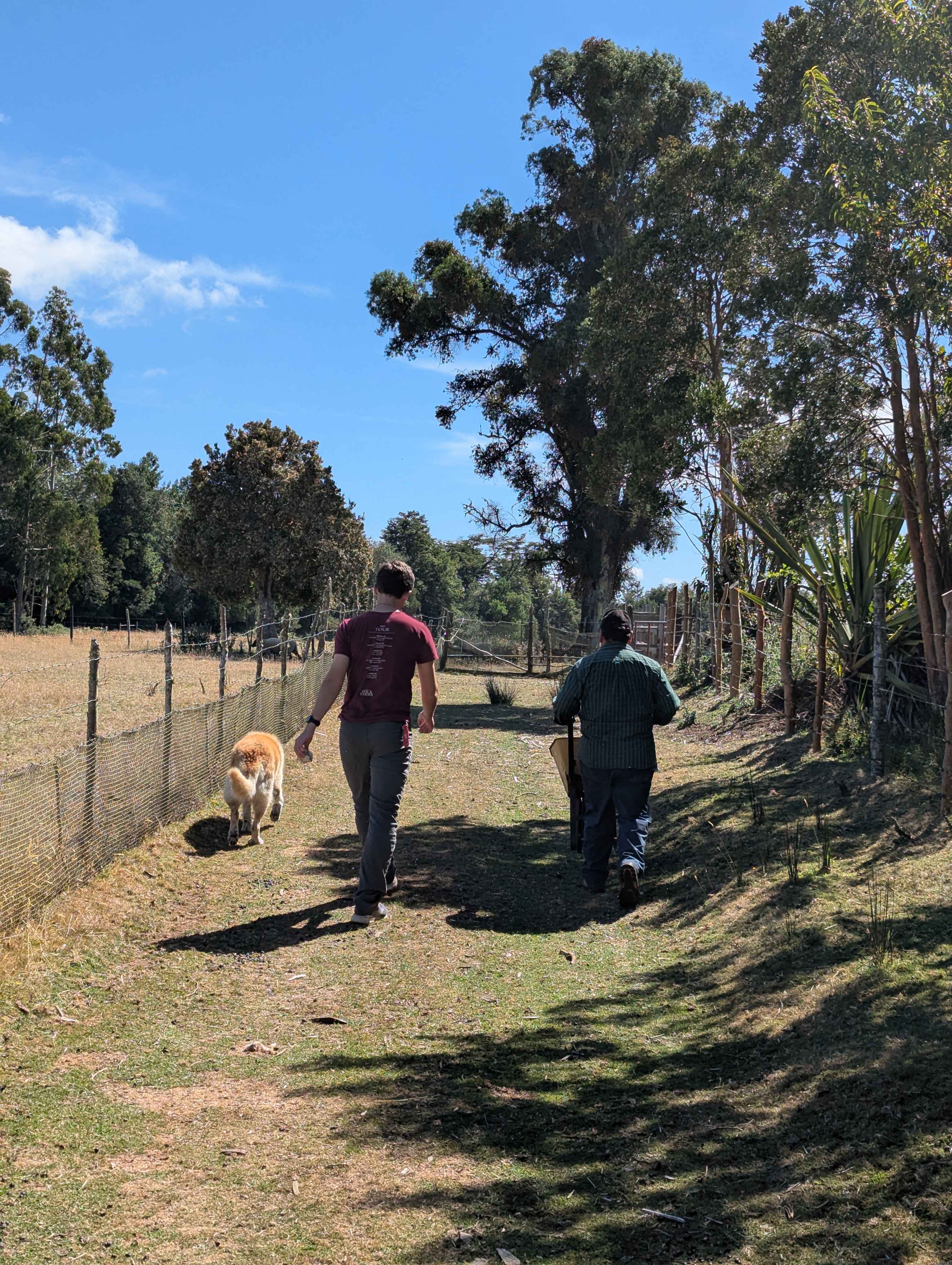
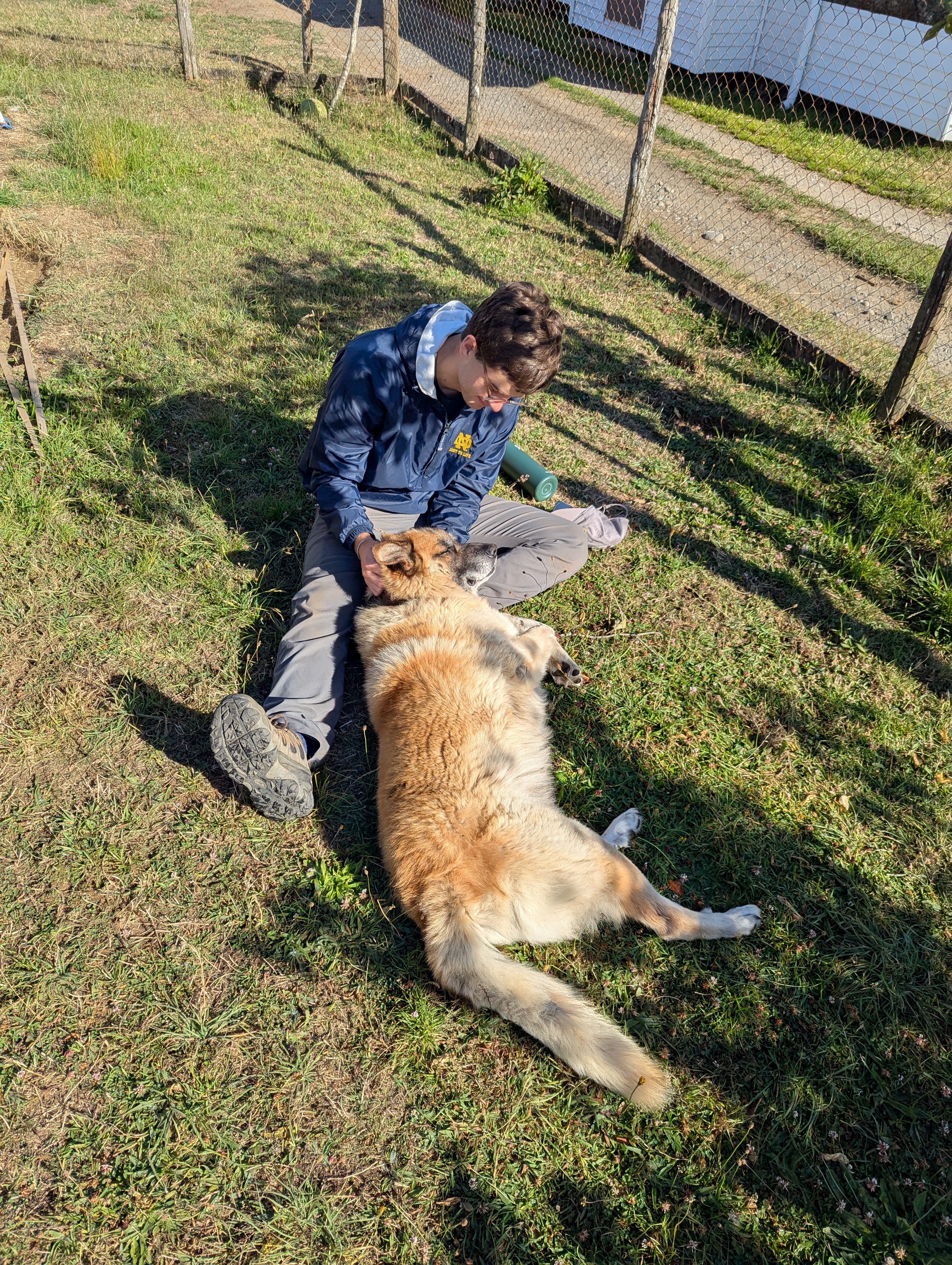
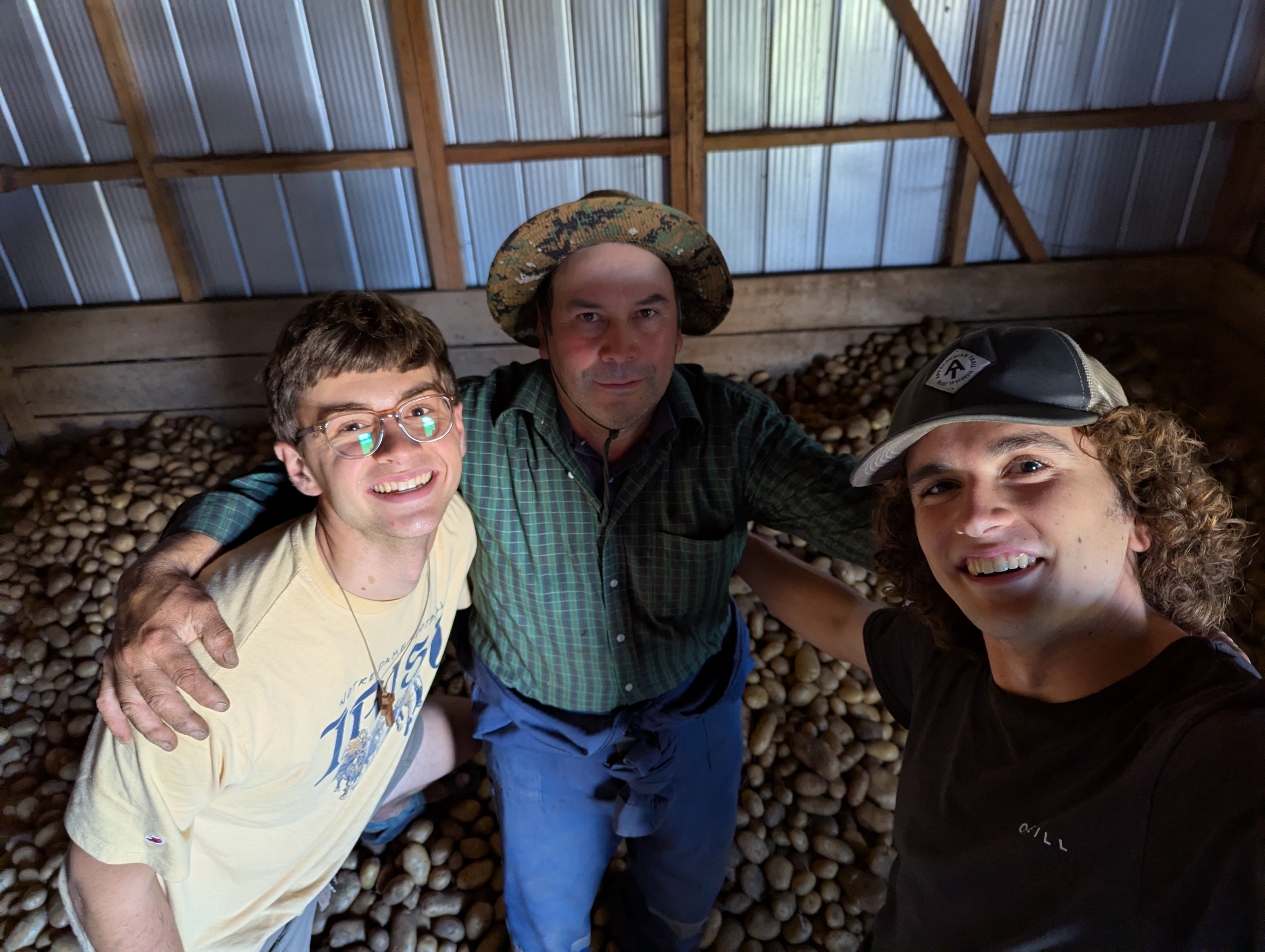
Santiago
On the 22nd, we flew from Chiloé to Santiago and immediately went to meet up with our host families, who we will be staying with until the end of the semester in July. Riding in a bus from the airport to our meeting place was probably the most nervous I felt on this trip. However, despite the challenges of all things that come from an immersive homestay, my host-mother Rosalia has made things very easy for me. Since picking me up, she has been patient with my Spanish and given me space to move in. She lives in an apartment in Ñuñoa (a region of Santiago) by herself, and started hosting exchange students 15+ years ago after her son moved out of the house. I have a small room with a bed, desk and access to the small balcony. I'm really happy with my location and I'm looking forward to exploring more of the area and starting classes soon.
Thoughts
On Puchilco:
I really appreciated and respected the balance of modernity with antiquity in Puchilco. Many things, like hot water or specialized groceries, were not instantly available, but most people seemed very content with what they had rather than seeking a lot of improvement. Combined with the surprising lack of much tourism in the area, Chiloé struck me as a very stable and tranquil area. Almost forgotten by the world.
On learning Spanish:
There have been ups and downs with the Spanish immersion. I have certainly gotten a lot faster and more confident with it, but I still have a lot of difficulty speaking about complex topics. I don't think I'll be fooling any Chileans into thinking I'm local anytime soon. The hardest part for me is in the mornings, starting the day and realizing I will immediately have to start translating all of my thoughts again. As I start to speak, I do enjoy the feeling of learning daily and trying out new vocabulary, and that helps balance the frustration that can come when I don't have the words. Out of all the parts of learning a new language, I'm missing vocabulary the most, so I've been writing down words as I don't know them to translate and study later, and that has helped a lot!